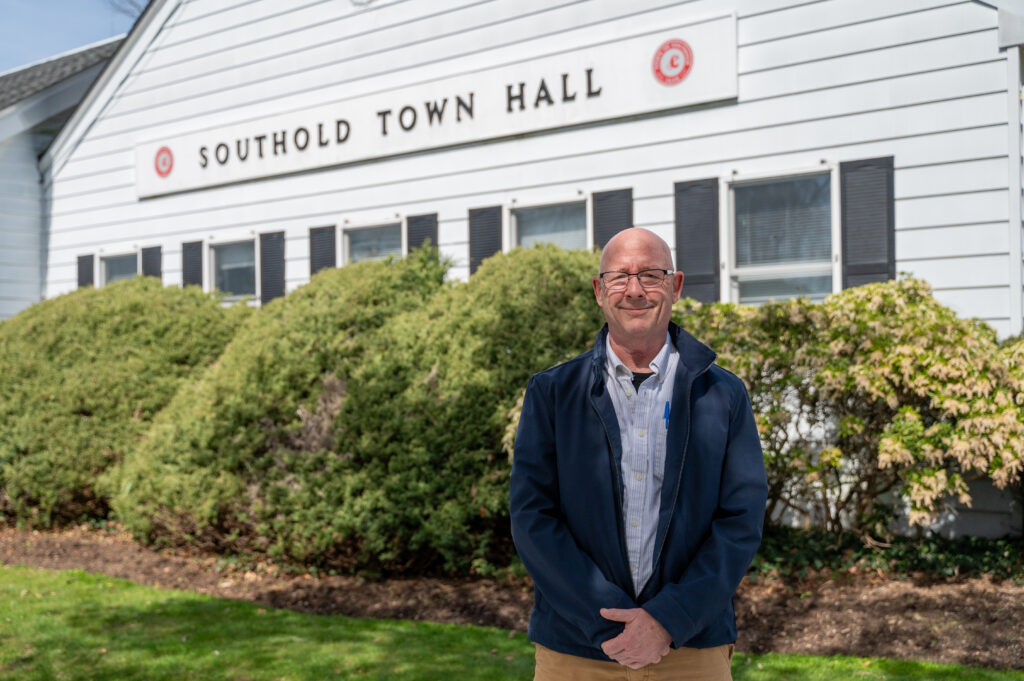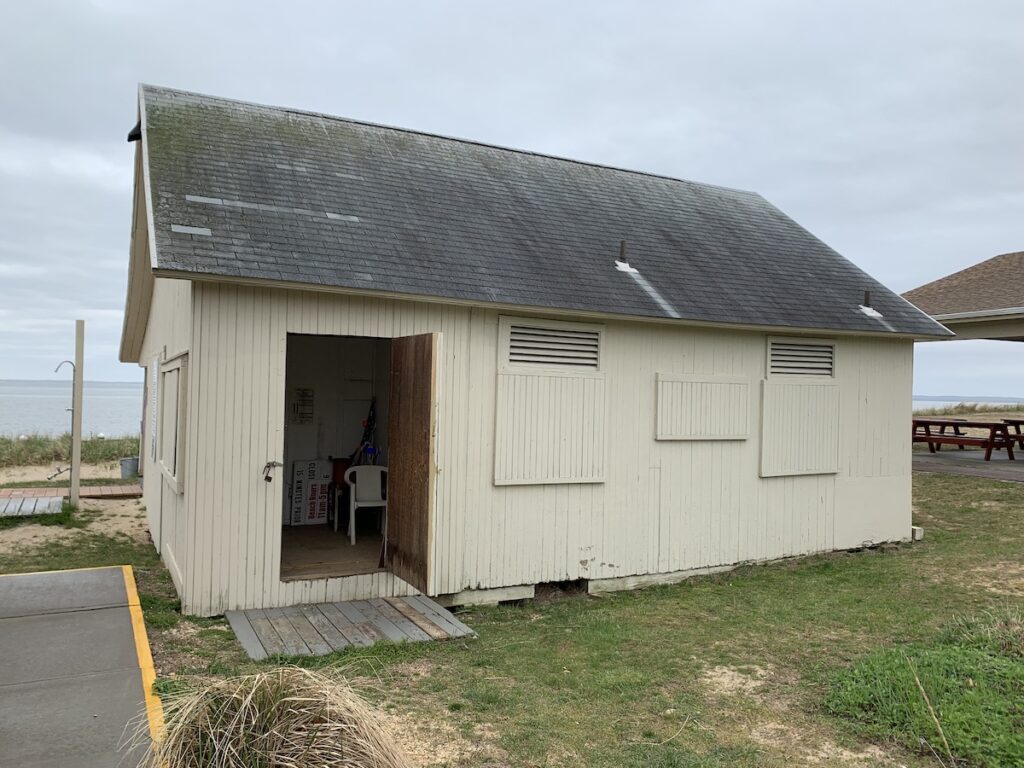Engineer: Justice Court, new Town Hall could cost Southold $37M

Forty years after the Southold Justice Court relocated to Town Hall in what was expected to be a temporary move, the Town Board may be just weeks away from finally deciding where the court’s next home will be.
The decision is likely to carry a steep price tag, with board members seemingly favoring an option that would include a new Town Hall and could cost an estimated $37 million.
The favored plan, town officials agreed at a work session Tuesday, would convert the former Southold Savings Bank building — now a town hall annex — into a Justice Court. A new Town Hall would be built on open space behind the existing building, which would be demolished and turned into green space.
“This conversation is going to be a painful one,” Councilwoman Jill Doherty warned as the board met in open session with town engineer Michael Collins and building maintenance supervisor Tim Abrams.
The duo outlined two options for the future of the town buildings, both of which have long been described as overcrowded and in need of repairs.
The less expensive proposal would be what Mr. Collins called a “double renovation.” Under that plan, which carries an estimated $28 million price tag, both buildings would be renovated, with the existing Town Hall becoming the Justice Court and all town offices moving to the annex.
The town acquired the former bank building, which had most recently been a Capital One Bank branch, for $3.1 million in August 2018. The purchase was funded and authorized through a $5 million bond that was also meant to pay for renovations to accommodate the court at that space.
In the three years since, town officials have considered various scenarios, including the costs of doing essential repairs. Mr. Collins and Mr. Abrams said Tuesday that if the Town Board did not wish to go through with a major renovation it would still need to pay about $5 million for a new roof and HVAC work. Town Board members expressed concern that following that path would lead to more repairs in the near future.
Mr. Collins said expenses under each scenario include the cost of relocating displaced workers during renovations. Construction costs are also currently soaring nationwide.
“It doesn’t really sound like it makes sense to make those smaller updates, because as you’re saying it’s going to be disruptive,” Councilwoman Sarah Nappa told Mr. Collins. “Obviously those [repairs] need to be done. But my concern is, I know building costs are high right now, but they’re just going to keep climbing. I would be looking toward trying to figure out a way that we can do more than just sort of a Band-Aid and kicking it down the road. I think that’s a mistake.”
Ms. Doherty said the town has taken the piecemeal approach for too long and agreed the time to act is now.
If the town moves forward with the favored plan, a decision town officials said could be made as soon as July, the current Town Hall parking lot would be filled with trailers to serve as temporary offices during what is estimated to be an 18-month project once it starts.
Mr. Collins said the alternative proposal to move all offices to the annex also has limitations given the existing infrastructure.
“You’re going to make compromises if you try and squeeze everyone into that building, because of the way it’s configured,” he said. “You can only do so much with it.”
With new construction, a building could be the same square footage, but be designed more efficiently to maximize the space based on the town’s needs. He also said costs can be better controlled with new construction.
“Once you start opening up walls [during a renovation], you never know what you’re going to find,” Mr. Collins said.
He also said the $37 million price tag is a less firm estimate than the $28 million project, an option the town has researched more extensively. He believes the more expensive project could end up costing less if the town moves in that direction, bringing the two figures closer together.
Town Councilman Bob Ghosio said he hopes to see the taxpayer impact before moving forward, a figure Mr. Collins said has not yet been established.
Ms. Doherty, who chaired the meeting in Supervisor Scott Russell’s absence, said Mr. Collins will be invited back to give more information at the town’s June 29 work session. A vote to set a public hearing on a bond resolution could be held in July, she said.
“We hope [the project] will be done sooner than later,” Ms. Doherty said. “The point being is that unless you lock this in soon, those numbers are going to be irrelevant.”
Justice Court sessions have been held at Southold Town Hall since 1981, having previously taken place in a court building in Cutchogue. The current Town Hall was built in 1977. The town acquired the land behind it for a possible expansion in 2005.








